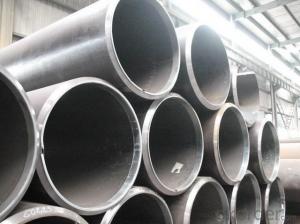Steel Pipe With High Quality And Best Price
- Loading Port:
- Tianjin
- Payment Terms:
- TT OR LC
- Min Order Qty:
- 40 m.t.
- Supply Capability:
- 500 m.t./month
OKorder Service Pledge
OKorder Financial Service
You Might Also Like
PRODUCT DETAILS
1.Structure of Seamless Steel Pipe Description:
A large amount of Seamless Steel Pipes is offered to the clients at cost effective rates. These pipes are extremely durable, resistant to corrosion and have high tensile strength. Our pipes are used in nuclear plants, power plants, refineries and construction industry across the country. Furthermore, we are capable of providing these seamless pipes to the clients in bulk quantity.
2.Main Features of the Steel Pipe:
• High manufacturing accuracy
• High strength
• Small inertia resistance
• Strong heat dissipation ability
• Good visual effect
•Reasonable price
3.Packaging & Delivery:
| Packaging Details: | Seaworthy packages, bundles wrapped with strong steel strip |
| Delivery Detail: | 15-30 days after received 30% TT |
4.Seamless Steel Pipe Specification:
| Standard: | GB, DIN, ASTM,ASME, ASTM A106-2006, ASTM A53-2007 |
| Grade: | 10#,20#, 45#, 16Mn |
Thickness: | 8 - 33 mm |
| Section Shape: | Round |
| Outer Diameter: | 133 - 219 mm |
| Place of Origin: | Shandong, China (Mainland) |
| Secondary Or Not: | Non-secondary |
| Application: | Hydraulic Pipe |
| Technique: | Cold Drawn |
| Certification: | API |
| Surface Treatment: | factory state or painted black |
| Special Pipe: | API Pipe |
| Alloy Or Not: | Non-alloy |
| Length: | 5-12M |
| Outer Diameter: | 21.3-610mm |
5.Product pictures
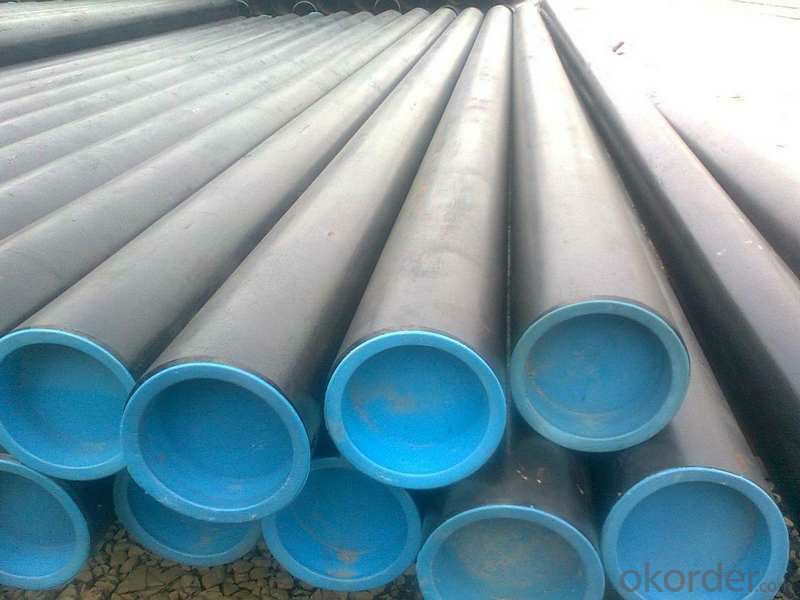
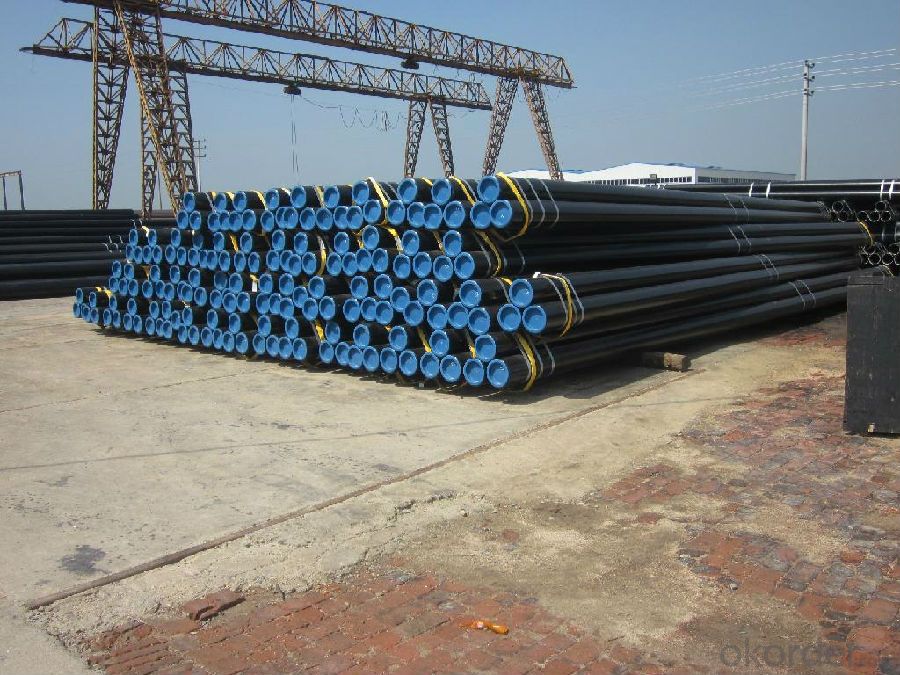
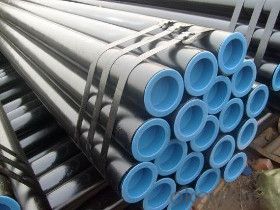
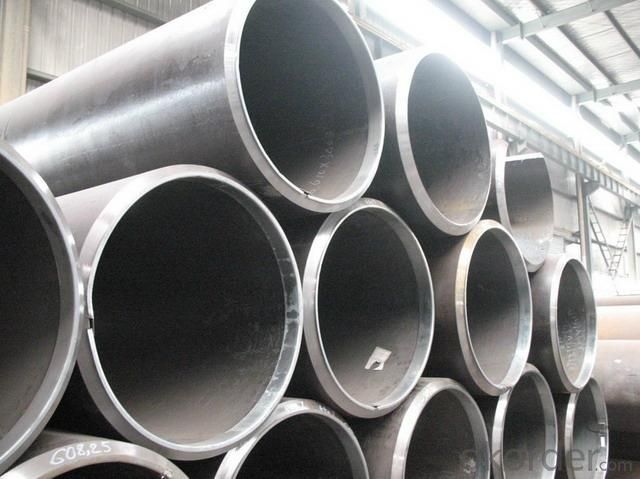
6.FAQ of Seamless steel pipe:
①How is the quality of your products?
Our products are manufactured strictly according to national and internaional standard, and we take a test
on every pipe before delivered out. If you want see our quality certifications and all kinds of testing report, please just ask us for it.
Guaranteed: If products’ quality don’t accord to discription as we give or the promise before you place order, we promise 100% refund.
②How about price?
Yes, we are factory and be able to give you lowest price below market one, and we have a policy that “ for saving time and absolutely honest business attitude, we quote as lowest as possible for any customer, and discount can be given according to quantity”,if you like bargain and factory price is not low enough as you think, just don’t waste your time.Please trust the quotation we would give you, it is professional one.
③Why should you chose us?
Chose happens because of quality, then price, We can give you both.Additionally, we can also offer professional products inquiry, products knowledge train(for agents), smooth goods delivery, exellent customer solution proposals.Our service formula: good quality+good price+good service=customer’s trust.
SGS test is available, customer inspection before shipping is welcome, third party inspection is no problem.
Any question, pls feel free to contact us !
- Q:What are the applications of steel pipes?
- Steel pipes are widely used in various industries and applications due to their exceptional strength, durability, and versatility. Some common applications of steel pipes include transportation of fluids and gases in oil and gas industry, water supply and drainage systems, structural support in construction projects, plumbing and heating systems, manufacturing of automobiles and machinery, and in the agricultural sector for irrigation and irrigation systems. Additionally, steel pipes are also used in the energy and power generation sector, chemical processing plants, and for underground and underwater installations.
- Q:How are steel pipes used in nuclear power plants?
- Steel pipes are extensively used in nuclear power plants for various purposes. They are primarily used for the transportation of coolant, such as water or gas, which helps in removing heat from the reactor core. Steel pipes are also used to convey steam generated by the reactor to the turbine, where it is used to generate electricity. Additionally, steel pipes are utilized for the transportation of various fluids, such as lubricants and chemicals, for different processes within the plant. The durability, strength, and resistance to high temperatures and pressure make steel pipes an ideal choice for these critical applications in nuclear power plants.
- Q:Are steel pipes recyclable?
- Yes, steel pipes are highly recyclable. They can be melted down and repurposed into new steel products without losing their quality or strength. Recycling steel pipes not only conserves natural resources but also reduces energy consumption and greenhouse gas emissions associated with steel production.
- Q:What are the different types of hangers used for supporting steel pipes?
- There are several different types of hangers used for supporting steel pipes, each with its own unique design and purpose. Some of the most common types include: 1. Clevis Hangers: These hangers consist of a U-shaped loop that is attached to a support structure using a threaded rod. The pipe is then placed inside the loop and secured in place with a bolt. Clevis hangers are often used in vertical pipe runs and provide excellent support and stability. 2. Split Ring Hangers: These hangers are designed with a split ring that wraps around the pipe and is attached to a support structure using a threaded rod. Split ring hangers allow for easy installation and adjustment, making them suitable for various pipe sizes and applications. 3. Pipe Clamps: Pipe clamps are simple and versatile hangers that consist of a metal clamp that wraps around the pipe and is secured to a support structure using screws or bolts. These hangers are available in various designs, such as one-hole, two-hole, or cushioned clamps, to accommodate different pipe sizes and provide stability. 4. Beam Clamps: Beam clamps are specifically designed to attach to overhead support beams or structures. They typically feature a clamp that wraps around the beam and a threaded rod or bolt that attaches to the pipe. Beam clamps are suitable for supporting horizontal pipe runs and are commonly used in industrial and commercial settings. 5. Roller Hangers: Roller hangers are used when there is a need for pipe movement due to thermal expansion or contraction. These hangers consist of a roller that allows the pipe to move freely while still providing support. Roller hangers are commonly used in long pipe runs or where there is a significant temperature variation. 6. Spring Hangers: Spring hangers are designed to support pipes and absorb vibrations or shocks. They consist of a spring element that is attached to a support structure and a rod or rod assembly that supports the pipe. Spring hangers are often used in applications where there is a need for noise reduction or to prevent damage caused by vibrations. These are just a few examples of the different types of hangers used for supporting steel pipes. The choice of hanger depends on factors such as pipe size, weight, location, and specific requirements of the installation. Consulting with a professional or engineer is recommended to ensure the appropriate hangers are selected for each specific application.
- Q:What's the difference between a rectangular tube and a rectangular steel tube?
- Rectangular tube is a kind of hollow long strip steel, also known as flat tube, flat square tube or square flat tube (Gu Mingsiyi). A large amount of pipe used to transport fluids, such as petroleum,Natural gas, water, gas, steam, etc., in addition to bending and torsional strength of the same weight is lighter, so it is also widely used in the manufacture of machinery parts and engineering structures. It is also used to produce all kinds of conventional weapons, guns, shells and so on.
- Q:Can steel pipes be used for oil refinery applications?
- Yes, steel pipes can be used for oil refinery applications. Steel pipes offer many advantages for oil refinery applications including high strength, durability, and resistance to corrosion. They are able to withstand high pressure and temperature conditions that are common in oil refinery operations. Steel pipes are also easy to transport and install, making them a popular choice for oil refinery projects. Additionally, steel pipes can be customized to meet specific requirements such as size, thickness, and coating, making them suitable for a wide range of oil refinery applications.
- Q:What are the applications of stainless steel pipes?
- Stainless steel pipes are widely used in various industries and applications due to their excellent corrosion resistance, durability, and strength. Some common applications include plumbing systems, water supply and distribution, heating and cooling systems, oil and gas industry, chemical processing plants, food and beverage industry, automotive industry, construction, and infrastructure projects. Additionally, stainless steel pipes are also utilized in pharmaceutical manufacturing, aerospace engineering, marine applications, and wastewater treatment facilities.
- Q:How are steel pipes used in heating systems?
- Steel pipes are commonly used in heating systems as they have excellent durability and heat resistance properties. These pipes are typically used to transport hot water or steam from a heating source, such as a boiler, to various parts of a building, including radiators or baseboard heaters. They are also used for circulating cooled water back to the heating source for reheating. The high strength and corrosion-resistant nature of steel pipes make them ideal for handling the high temperatures and pressures involved in heating systems, ensuring efficient heat transfer and long-lasting performance.
- Q:What are the common standards and specifications for steel pipes?
- The common standards and specifications for steel pipes include ASTM A53, ASTM A106, API 5L, and ISO 3183. These standards outline the requirements for the manufacturing, dimensions, and mechanical properties of steel pipes used in various industries such as oil and gas, construction, and transportation. Additionally, specific applications may have their own standards and specifications that need to be met for quality and safety purposes.
- Q:How are steel pipes inspected for quality?
- Steel pipes are inspected for quality through a rigorous process that involves various techniques and standards. One common method is visual inspection, where trained professionals examine the pipes for any visible defects such as cracks, dents, or surface irregularities. This visual inspection ensures that the pipes meet the required specifications and are free from any visible flaws. Additionally, non-destructive testing (NDT) methods are employed to evaluate the internal and external quality of the steel pipes. One widely used NDT technique is ultrasonic testing, which involves sending ultrasonic waves through the pipes to detect any internal defects or inconsistencies in the material. This method can identify issues like wall thickness variations, inclusions, or weld defects that may compromise the pipe's integrity. Another popular NDT technique is magnetic particle inspection, which uses magnetic fields and iron particles to identify surface cracks or flaws in the steel pipes. This method is particularly effective for detecting defects in ferromagnetic materials and can be performed on both the outside and inside surfaces of the pipes. Furthermore, hydrostatic testing is often conducted to evaluate the pipes' strength and resistance to pressure. In this process, the pipes are filled with water or another suitable fluid and subjected to a specified pressure to check for leaks or structural weaknesses. This test helps ensure that the pipes are capable of withstanding the intended operational conditions without failure. In addition to these techniques, various quality control measures are implemented throughout the manufacturing process, including material traceability, dimensional checks, and chemical composition analysis. These measures help guarantee that the steel pipes meet the required standards and specifications, ensuring their quality and reliability. Overall, the inspection of steel pipes for quality involves a combination of visual inspection, non-destructive testing methods, and quality control measures. These comprehensive procedures help identify any defects, inconsistencies, or weaknesses, ensuring that the pipes meet the necessary quality standards and are fit for their intended purpose.
1. Manufacturer Overview |
|
|---|---|
| Location | |
| Year Established | |
| Annual Output Value | |
| Main Markets | |
| Company Certifications | |
2. Manufacturer Certificates |
|
|---|---|
| a) Certification Name | |
| Range | |
| Reference | |
| Validity Period | |
3. Manufacturer Capability |
|
|---|---|
| a)Trade Capacity | |
| Nearest Port | |
| Export Percentage | |
| No.of Employees in Trade Department | |
| Language Spoken: | |
| b)Factory Information | |
| Factory Size: | |
| No. of Production Lines | |
| Contract Manufacturing | |
| Product Price Range | |
Send your message to us
Steel Pipe With High Quality And Best Price
- Loading Port:
- Tianjin
- Payment Terms:
- TT OR LC
- Min Order Qty:
- 40 m.t.
- Supply Capability:
- 500 m.t./month
OKorder Service Pledge
OKorder Financial Service
Similar products
New products
Hot products
Related keywords
